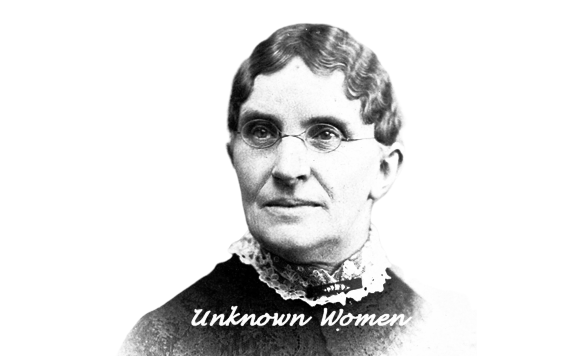Here are some places to visit and explore. For locations, click on the site name, or see the map below.
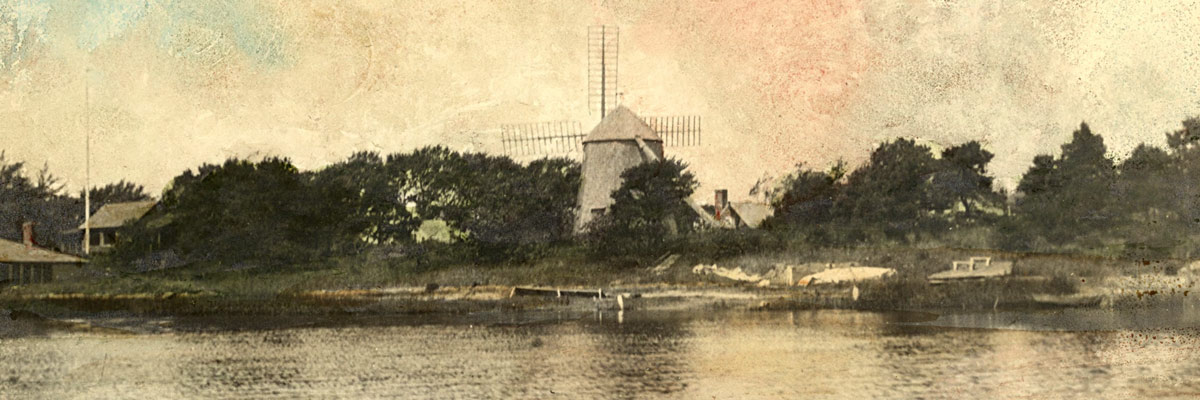
Museums
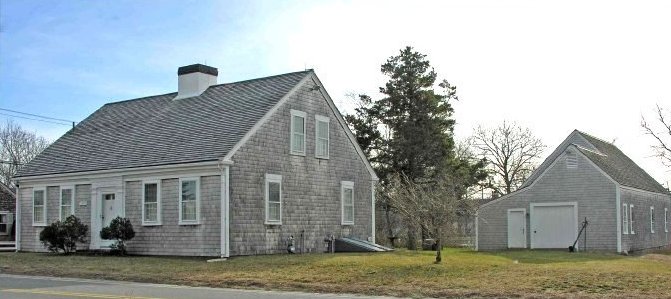
This historic full cape house built in 1801, and occupied by the Baker family until 1955, contains 19th century furnishings, textiles, paintings and keepsakes. Exhibits in the Barn Museum focus on farming.
2024 Schedule -
The Jericho Historical Center will reopen on Saturday, July 13th, 10 am to 3 pm. After this event, it will be open from July 16th to August 29th on Tuesdays and Thursdays from 1 to 4 pm. Special events will be publicized via posters, emails, DHS Newsletter, the Home Page of this website, and they appear in the 2024 DHS Calendar.
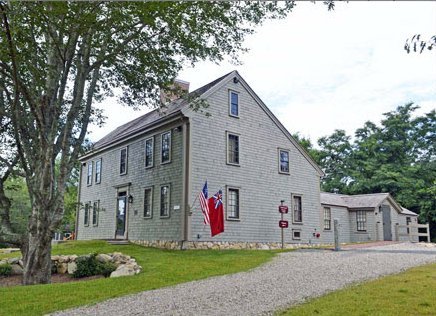
Saltbox home of the first minister, and the man for whom the Town of Dennis is named. Artifacts of early town life, children's room, spinning and weaving exhibit, gardens and maritime wing. A one room schoolhouse is on the property. Listed on the National Register of Historic Places.
2024 Schedule -
Open June 29th to September 24th on Thursdays 1 pm to 4 pm and Saturdays 1 pm to 4 pm. Closed on July 4th.
Special Events will be publicized via posters, emails, DHS Newsletter, the Home Page of this website,
and they appear in the 2024 DHS Calendar.
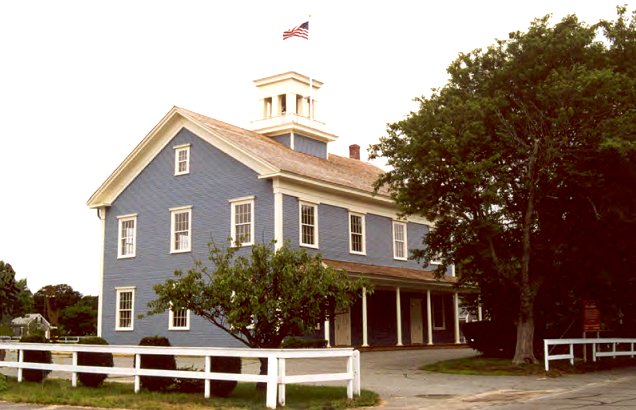
The Dennis Historical Society Maritime Museum is rich in artwork and artifacts of the town's storied maritime history.
2024 Schedule -
The Maritime Museum reopens for the season on Wednesday, July 10th, 1 to 4 pm. It will then be open on Wednesdays from 1 to 4 pm, until August 28th.
This property is owned by the Town of Dennis. For information about the status and use of this building, other than the days/hours of the DHS Maritime Museum, you must contact the Town.
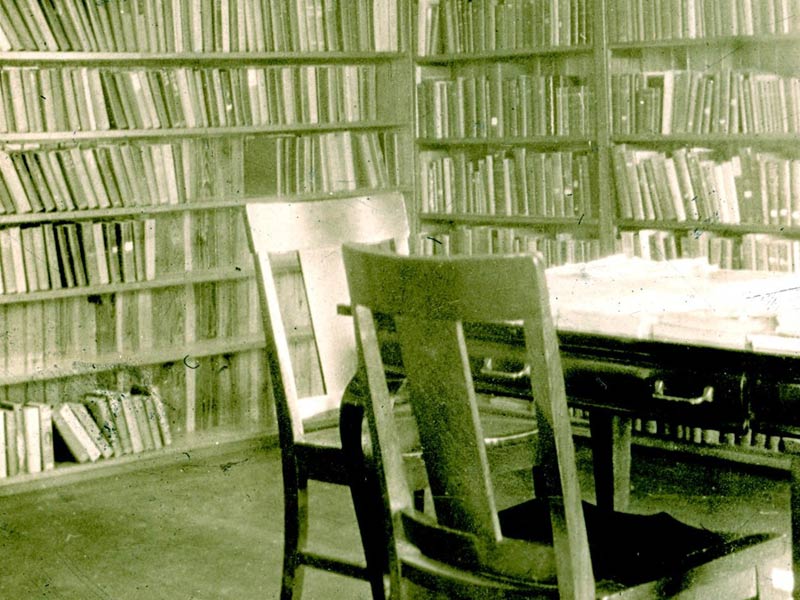
The Dennis Historical Society’s library, "The Pauline (Wixon) Derick Library" is located on the second floor of the West Dennis Free Public Library. The library consists of collections of books, manuscripts, photographs, scrapbooks and other ephemera, related to the Town of Dennis and the mid-Cape area. Of special interest are the maritime collections, diaries, early deeds, letters and genealogical information.
Historic Sites
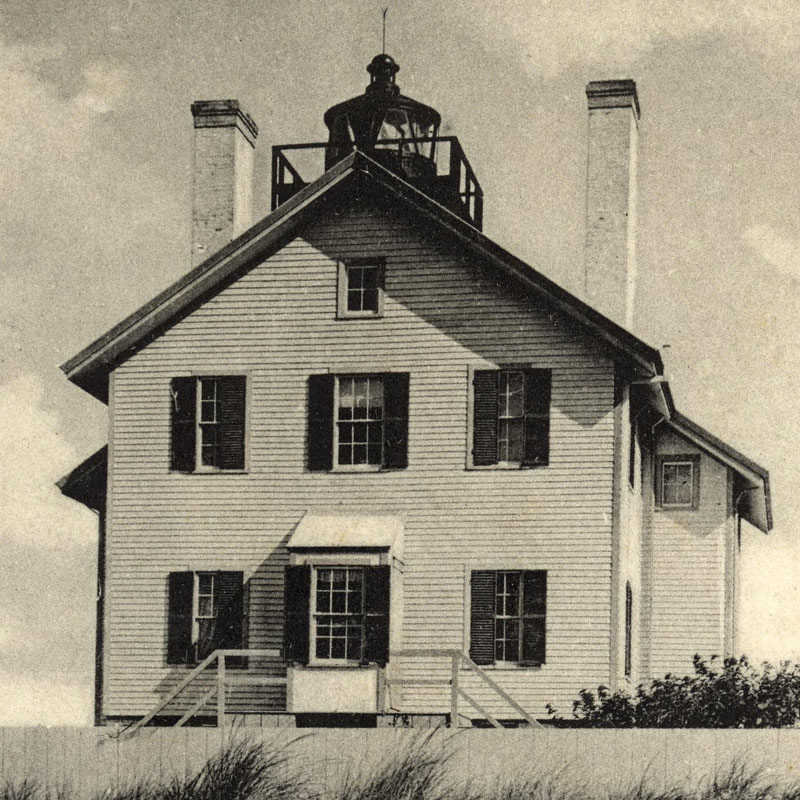
Bass River Light was among the last of 30 lighthouses erected beginning in 1797 on Cape Cod and the islands. Built in 1855 atop a large keeper's house, it had a range of 12 miles and flashed a white light every 6 seconds. The lighthouse replaced a lantern hung in the attic window of a private residence. It provided safe passage for an active fishing and packet fleet for 60 years.
The light was shut down in 1880, re-activated in 1881 and continued until 1914. Acquired as a private residence, the keeper's house was expanded in 1933 and later as the Lighthouse Inn.
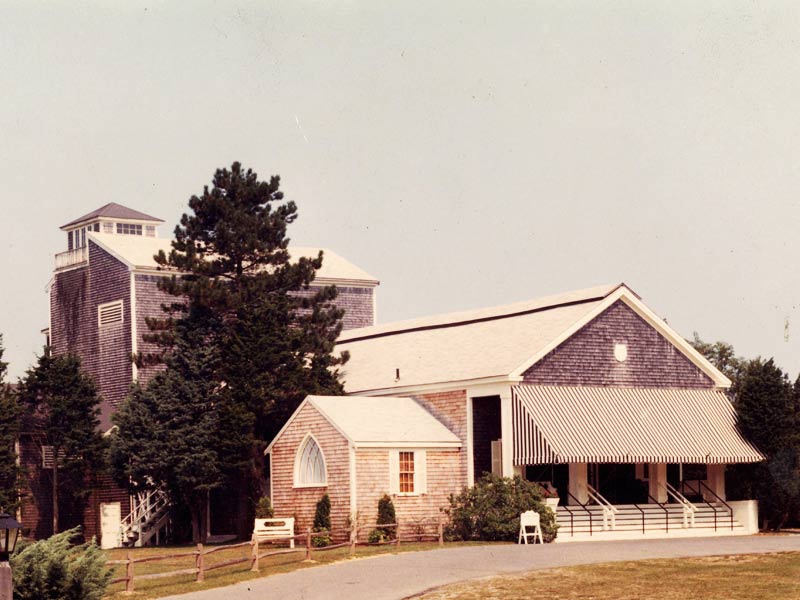
The Cape Playhouse is America's oldest professional summer theater. Founder Raymond Moore moved an abandoned Unitarian meetinghouse to land of Old King's Highway he had acquired in the 1920s. The theater opened in 1927 with a play starring Basil Rathbone. Henry Fonda and Bette Davis, a former playhouse usher, made their acting debuts here.
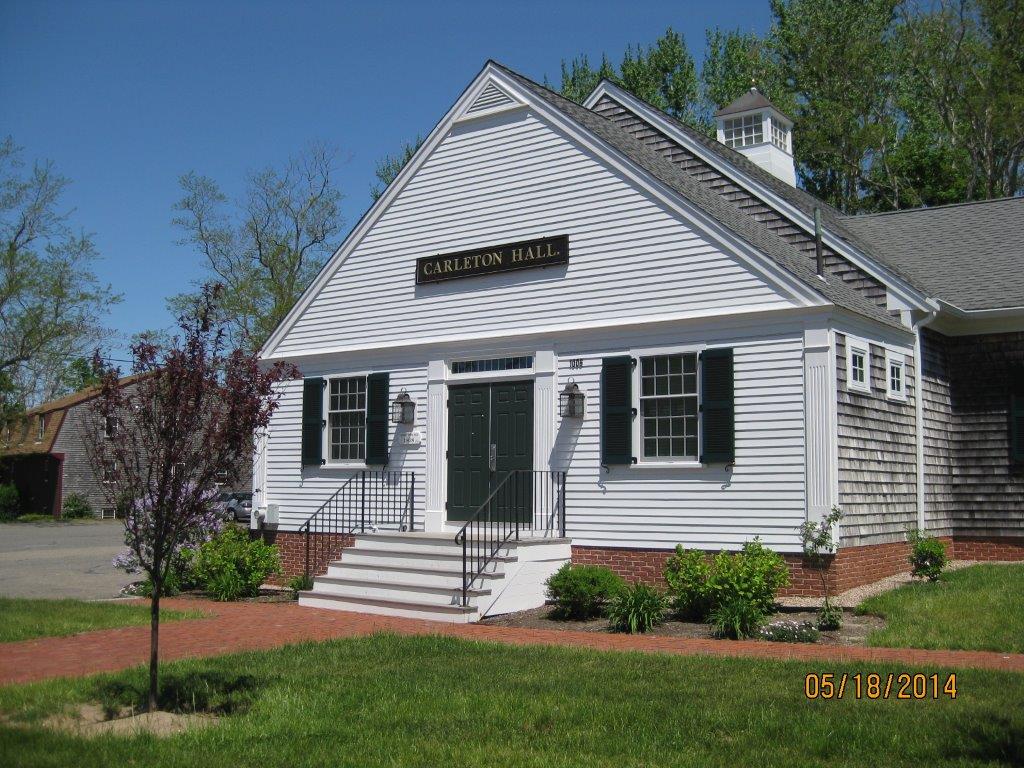
Carleton Hall began in 1828 as a Methodist "praying house.” In 1865, Captain Carleton Howes organized a group of village citizens to purchase the chapel for community activities. In 1954, villagers presented the building to the town as a gift. It continues to serve as a community center.
This building is owned and operated by the Town of Dennis. For information about about renting it, please contact the Town.
http://www.town.dennis.ma.us/
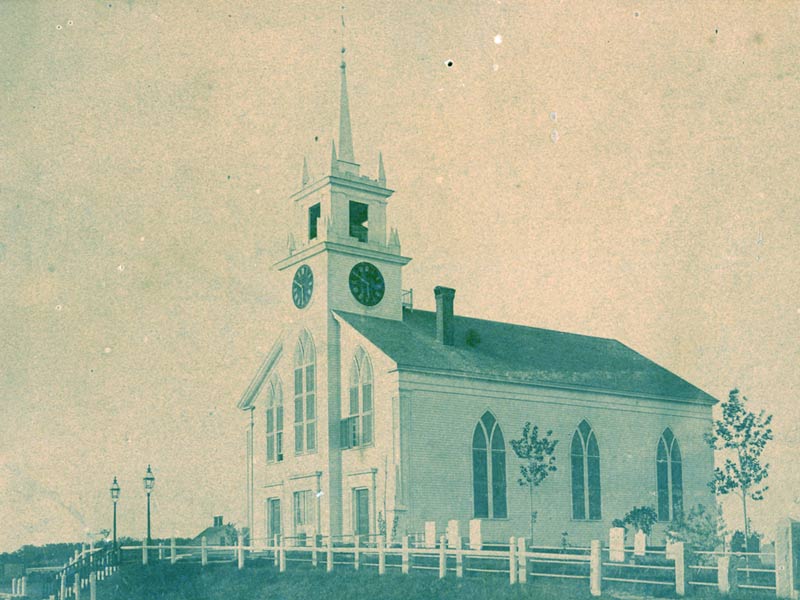
Also known as "Sea Captain's Church.” Built in 1835 at a cost of $3,700 on the site of the 1795 Bass River Meeting House, this hill-top church contains the nation's oldest working organ, a Sandwich glass chandelier, box pews and tablets listing 106 sea Captains who were church members.
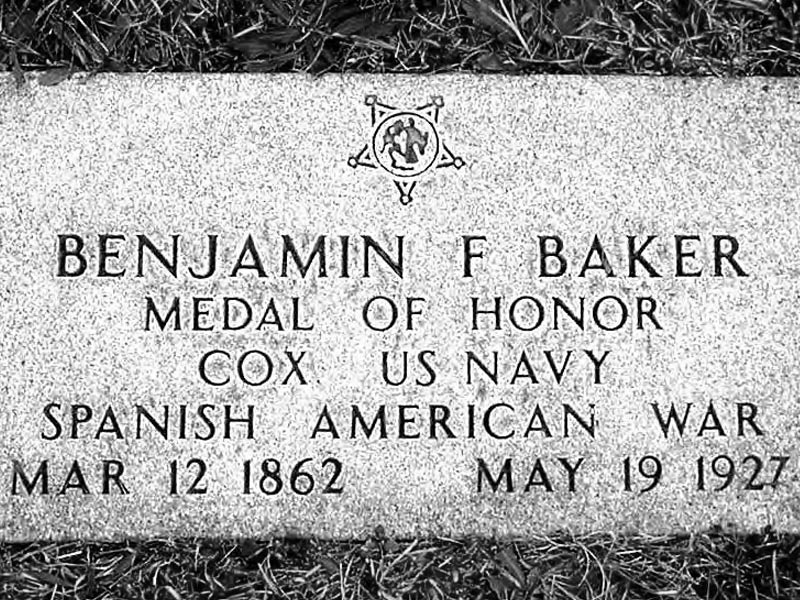
Benjamin Franklin Baker (1858-1927) is the only Cape Cod native to be awarded the Congressional Medal of Honor. Chief Master at Arms Baker was cited for "extraordinary bravery and coolness" while participating with 13 other USS Nashville crew members in a perilous mission during the Spanish-American War in 1898.
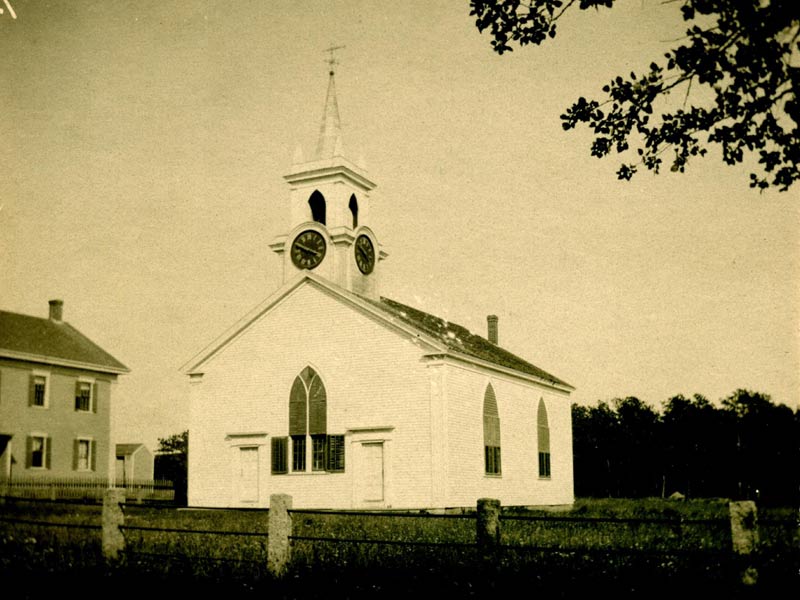
The church was formed in 1722 or 1723, based on a recommendation by members of The East Precinct Church of Yarmouth to build a second location closer to where most members lived.
Rev. Josiah Dennis, a young graduate of Harvard College in 1725, was called to serve the new parish, assuming his position in 1727. He served 36 years, until his death in 1763.
Rev. Nathan Stone was called to succeed Rev. Josiah Dennis and served 40 years, from 1764 until his death in 1804.
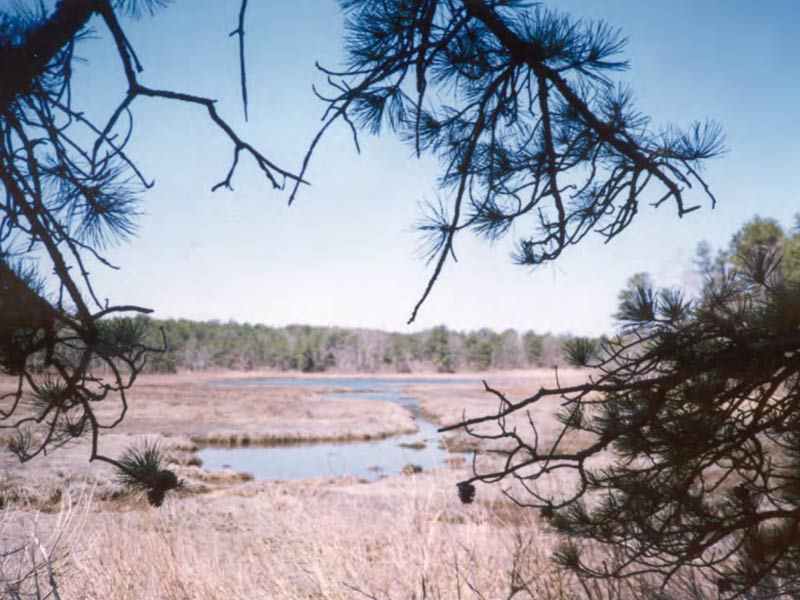
The Indian Lands, on 25 acres of woodland and marshes, today offers visitors access to a place where the Nobscusset Indians passed the winter months in comfortable wigwams, on the shores of Bass River, which offered shelter from the north winds, good water from springs, and plentiful fish and shellfish. They continued to reside here as late as 1778.
In late spring, the Lady's Slipper Orchid can be seen in scattered patches beside the walking trail that circles the Indian Lands.
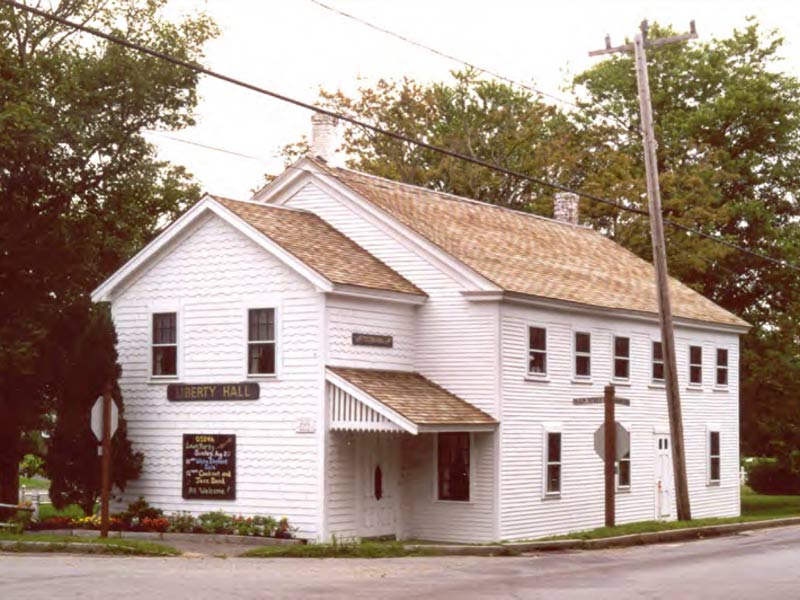
Liberty Hall stands at the center of one of the Commonwealth's "most perfectly preserved 19th century crossroads," in the center of the South Dennis Historic District. It was moved to this site in 1844 by teams of oxen. Over time it has been a stage coach stop, dry goods and provisions store, millinery outlet, furniture store, post office, supper hall, and a place for lectures, dances, plays and minstrel shows. Its colorful role as a village social center continues.
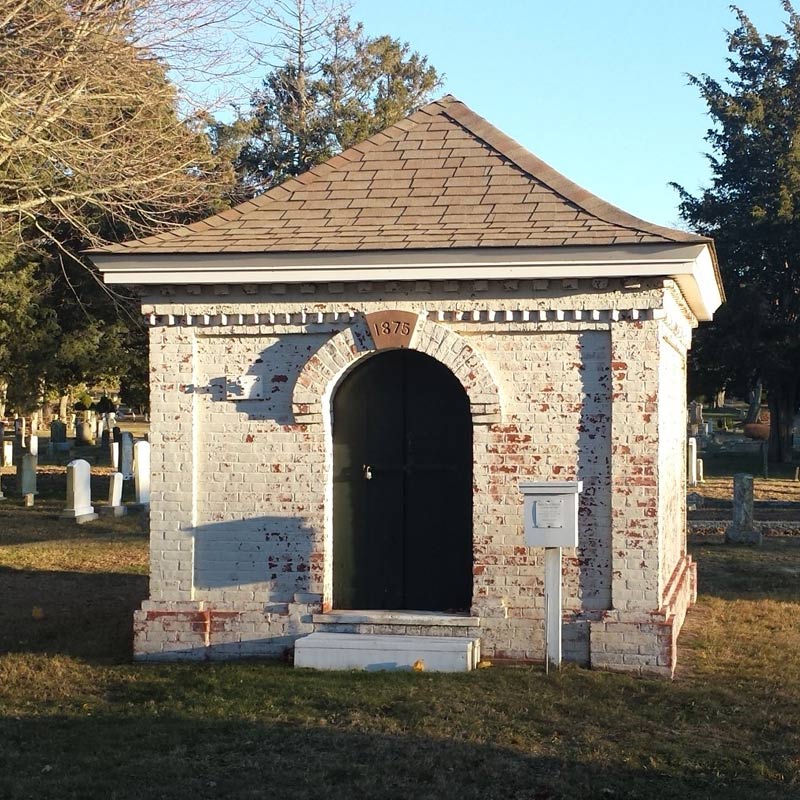
Constructed in 1875 in the Dennis Village Cemetery, the Receiving Tomb temporarily housed the bodies of those who died during the winter months when the ground was too frozen to allow burial. Now, in the warmer months when the "OPEN" flag is displayed outside, visitors are able to enter to see and read the information on pre-twentieth century burial practices in Dennis.
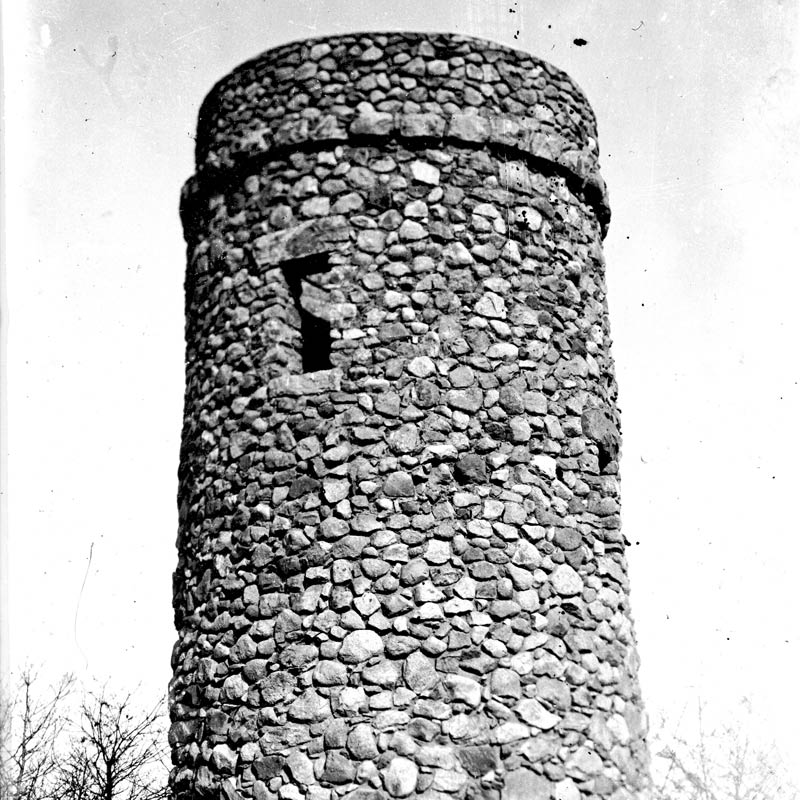
Scargo Tower began as a tourist observatory in 1874. Made of wood, it was destroyed in a gale two years later. Rebuilt again of wood, it burned in 1900. the present cobblestone tower opened in 1901. The 30 foot high tower is located atop the highest hill in the mid-Cape. Indian legends tell of the making of both Scargo Hill and Scargo Lake. Views may be seen of the entire lower cape to Provincetown, and as far west as Plymouth.
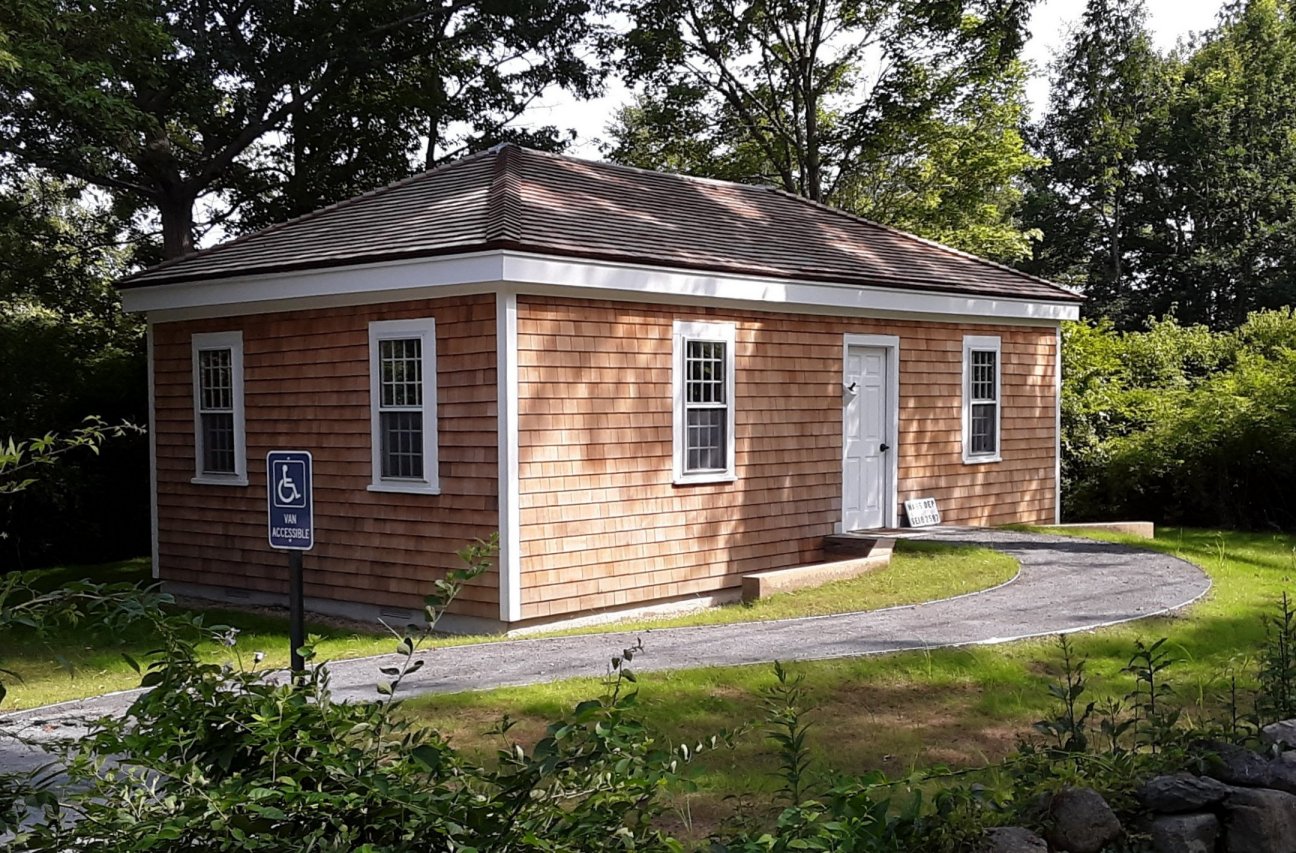
Education of the town's children was important to Dennis citizens in the 18th century. Twelve one-room schoolhouses were built throughout the town with the youngest attending school in the spring and summer, and the older ones in winter when farming chores had lessened. The West Schoolhouse is the only remaining one-room school in Dennis. It was once located at Old King's Highway and New Boston Road. The 230-year-old schoolhouse is listed on the National Register of Historic Places.
Historic Markers
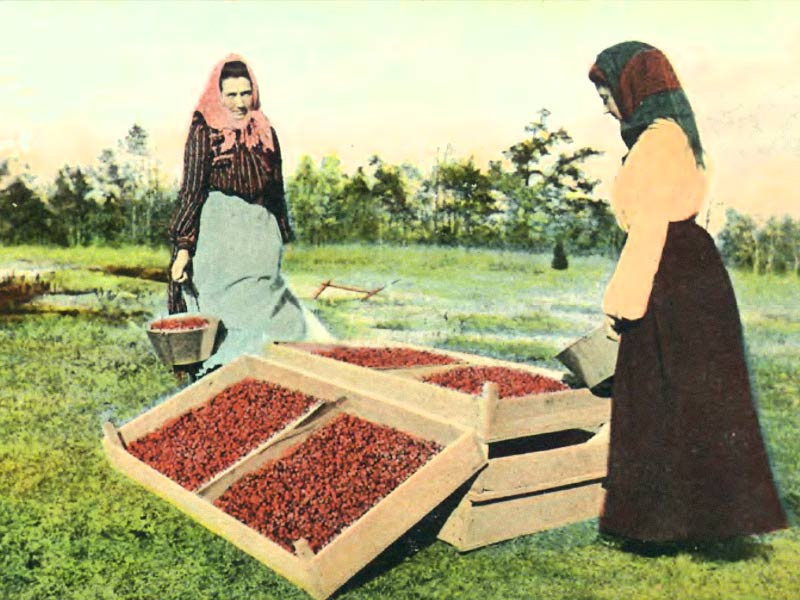
Cranberry cultivation had its beginning on Cape Cod when in 1816, Henry Hall, a Dennis village citizen, discovered that wild cranberry plants covered by winter's wind blown sand produced bigger and more plentiful berries. The practice of covering cranberry bogs with sand soon caught on. Early cranberry harvesting was by hand using scoops.
A plaque commemorates this industry.
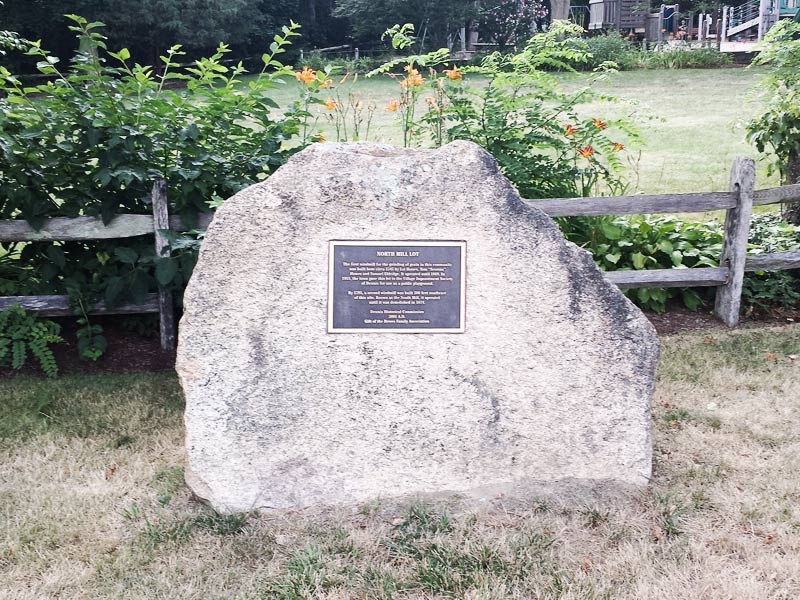
The first windmill for the grinding of grain in the community was built circa 1745 by Lot Howes, Tom "Severns" Howes and Samuel Eldridge. It operated until 1869.
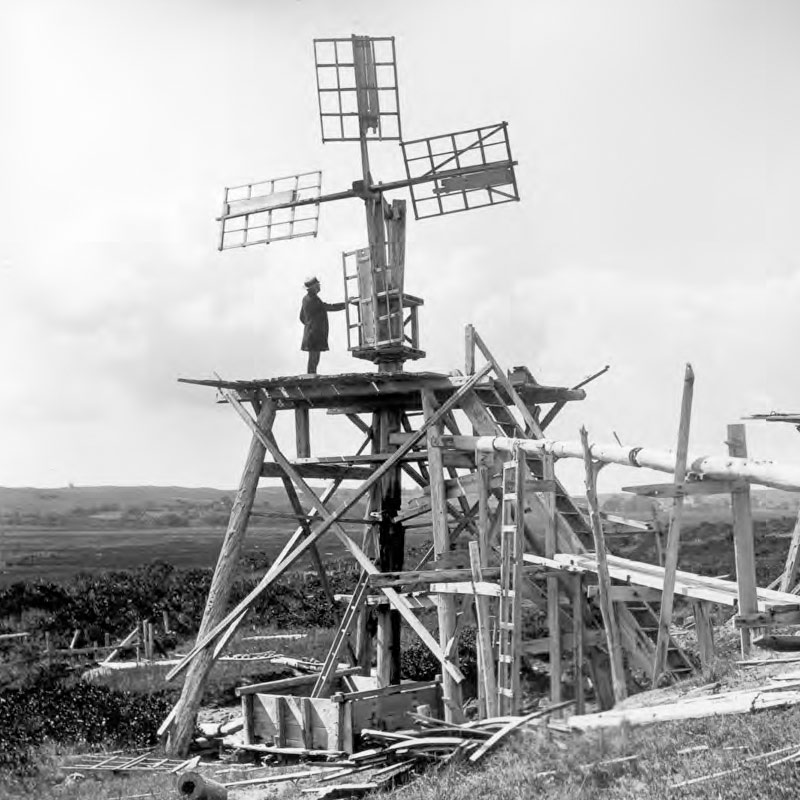
Salt was vital to the Cape's large fishing fleet and maritime trade. Most Cape salt was obtained by importation and boiling of seawater using prodigious amounts of scarce wood. With imports shut off by the Revolutionary War, John Sears, a Quivet Neck resident, began experimenting in 1776 with evaporative precipitation of sea water, an effort which resulted in only 8 bushels of salt after weeks of effort. Inventing portable roofs to cover the salt vats, protecting them from rain, Capt. Sears obtained a patent in 1799.
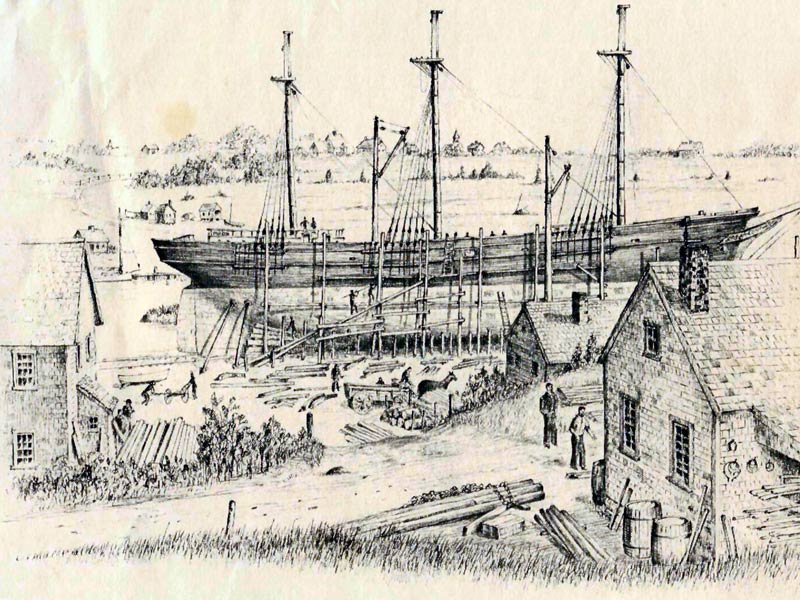
Asa Shiverick launched his first vessel, a schooner, in 1815. This was followed by a square-rigged brig, many more schooners, and eventually eight handsome clipper ships that would grace harbors around the world. The Shivericks (Asa would be joined by three sons in 1837) moved the shipyard near the mouth of Sesuit Creek to enable the launch-ing of the much larger clipper ships, the only Cape shipyard to build such vessels.
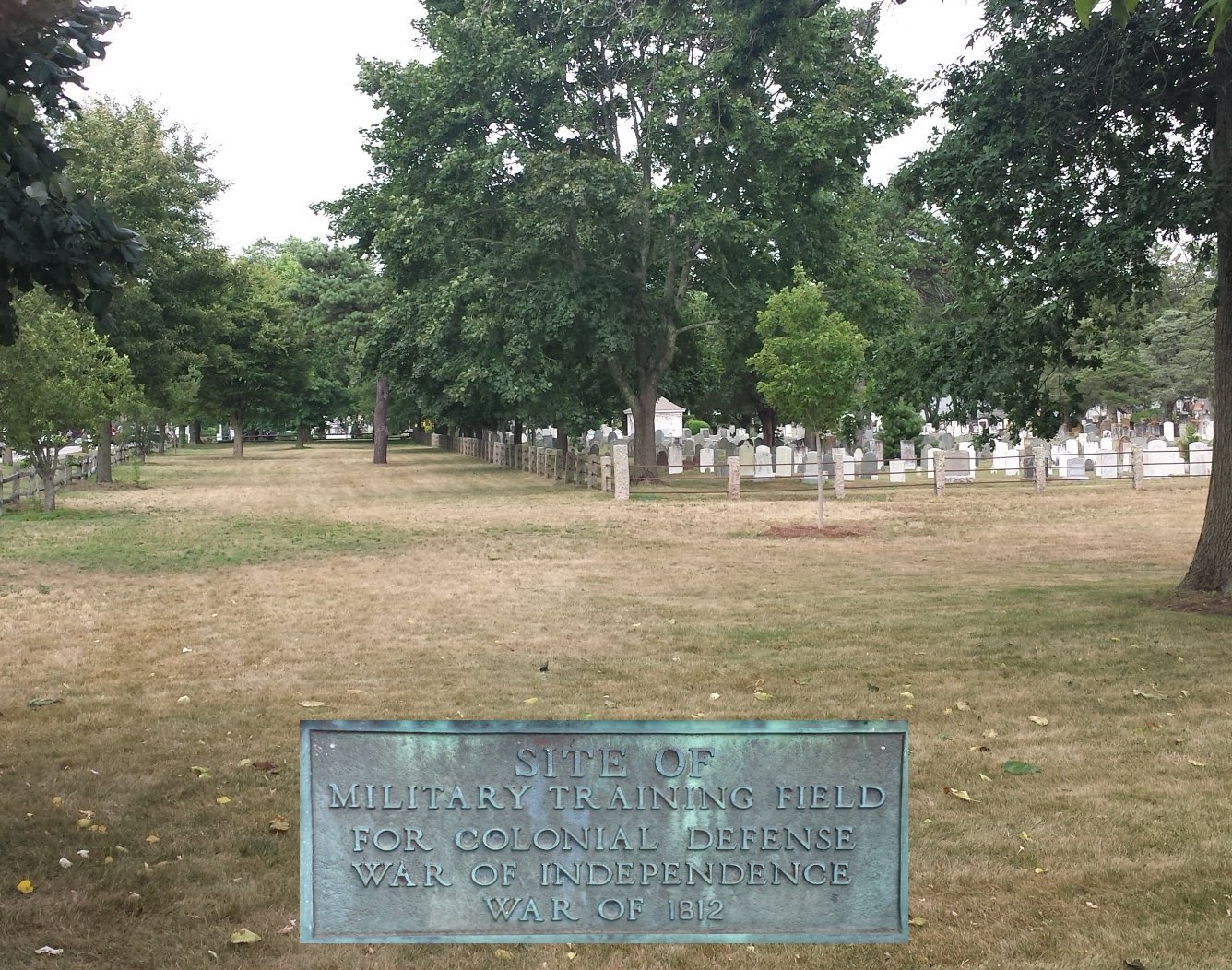
A small plaque commemorates this area as a training field for colonial defense during the American Revolution and the War of 1812.
Cemeteries
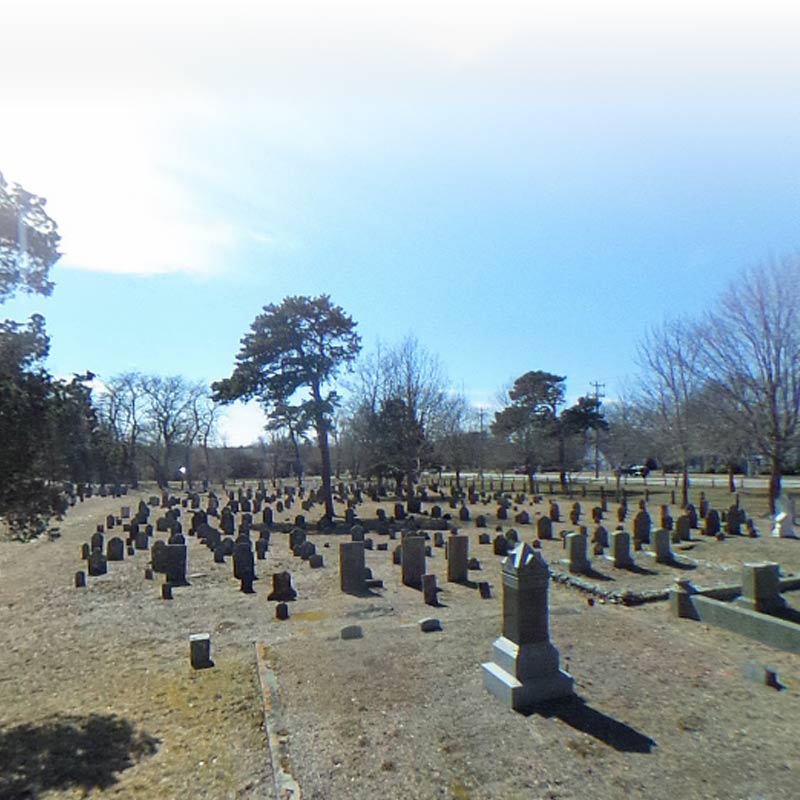
Also known as the Common Burying Ground and East Yarmouth Churchyard, Dennis Village Cemetery has grave markers dating to 1728, and may contain even older burials. It was established when Dennis was still part of neighboring Yarmouth. Its notable burials include Rev. Josiah Dennis, the namesake of the town, and his wife.

Here lies buried among their progeny Thomas Howes and wife, Marry (Burr), first of the name in this country, English immigrants to Massachusetts Bay Colony circa 1637.
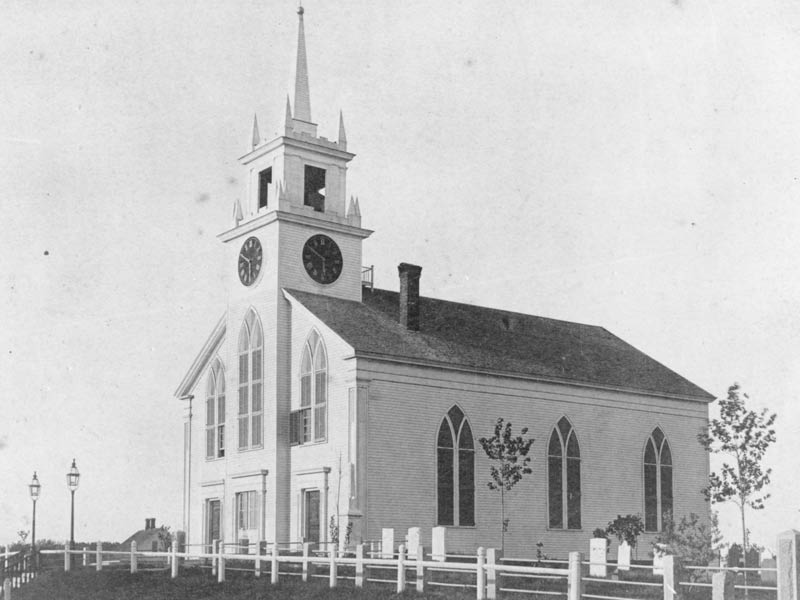
Isaiah Baker is the oldest name in this cemetery adjacent to South Dennis Congregational Church, with a date of death listed as September 25, 1795.
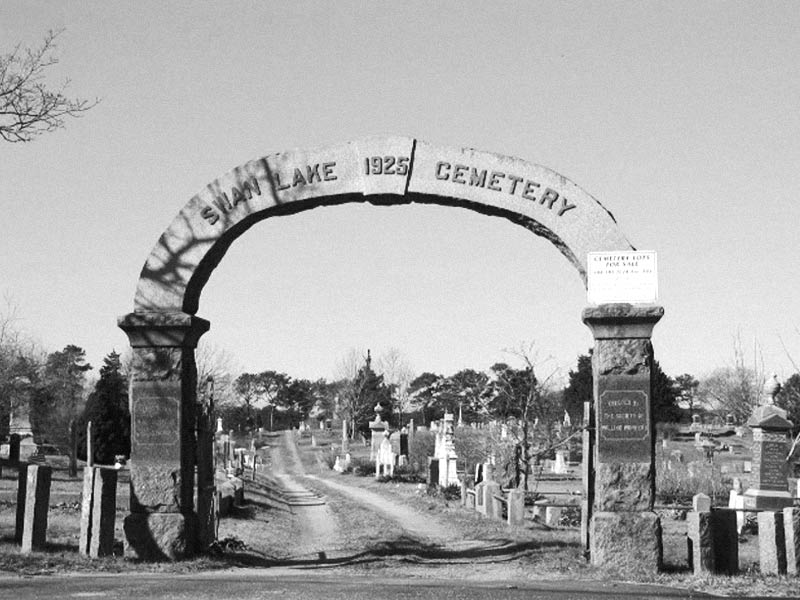
The Swan Lake Cemetery is a private cemetery covering just under 7 acres, located on Depot St. in Dennis Port, MA. It was founded in 1867 and incorporated in 1919.
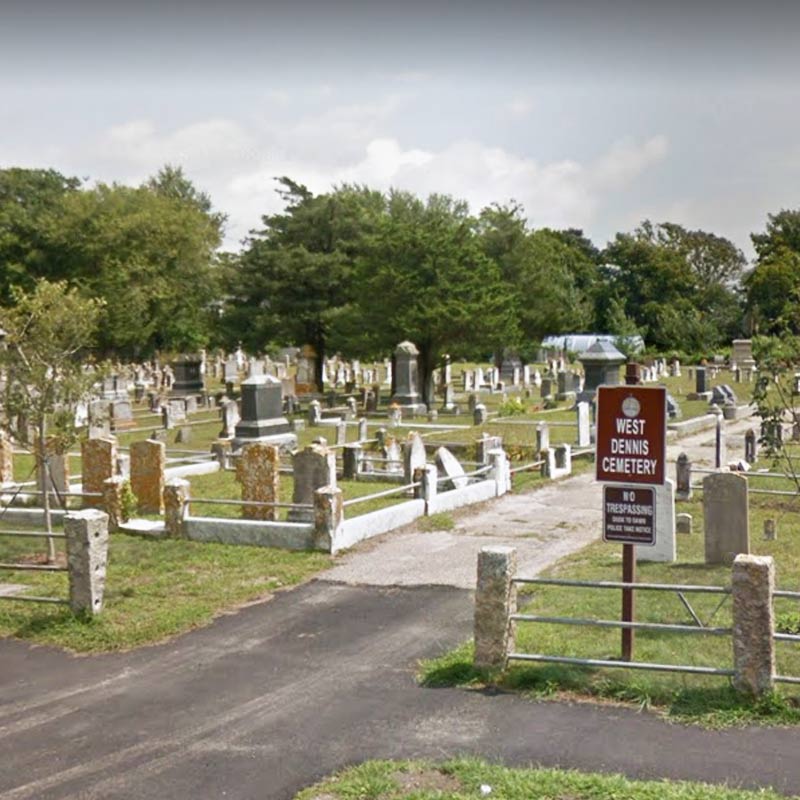
The cemetery originated circa 1700 as the Crowell Family Burying Ground. In 1857, the Methodist Congregation voted to purchase an adjacent acre then owned by Capt. Freeman Crowell which later became known as the Church Burying Ground.
Libraries
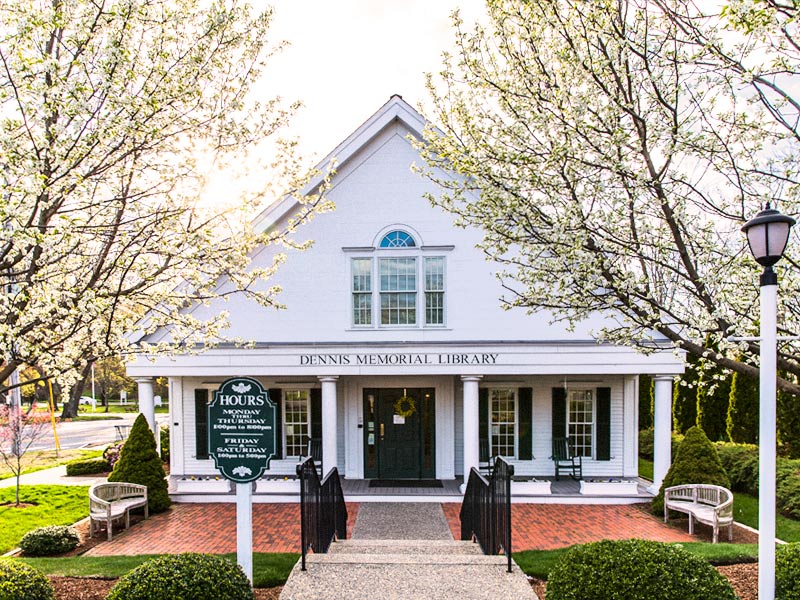
In 1923, the Memorial Library Association, Inc. of Dennis was formed for the purpose of building and maintaining a library for the benefit of the people in the Village of Dennis. When the original building was completed in 1924, it was dedicated as a memorial to Dennis veterans of World War I.
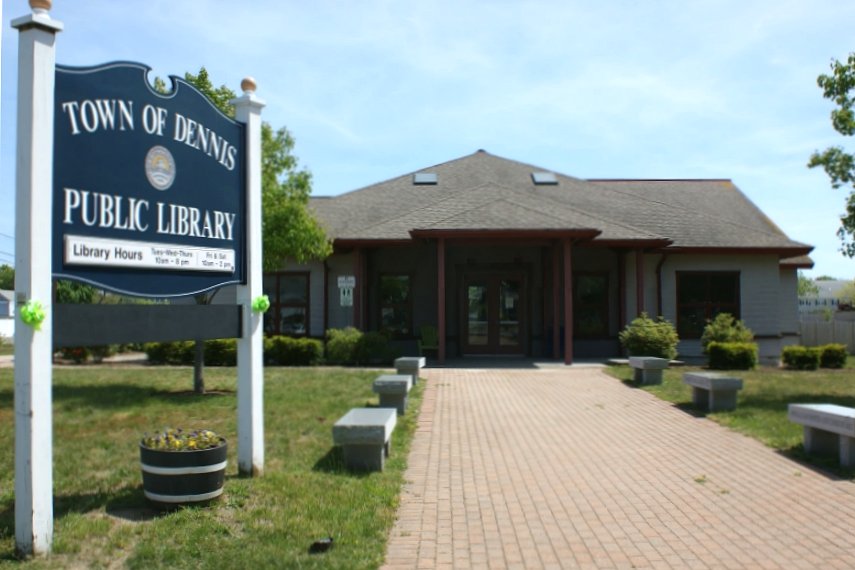
In addition to the genealogy resources in our Cape Cod Reference collection, the Dennis Public Library is also the home of the Cape Cod Genealogical Society's Genealogy Room. The CCGS holds office hours where you can get personal help with your genealogical research. Office hours are Tuesday 1-4, Thursday 10-4, Saturday 10-12
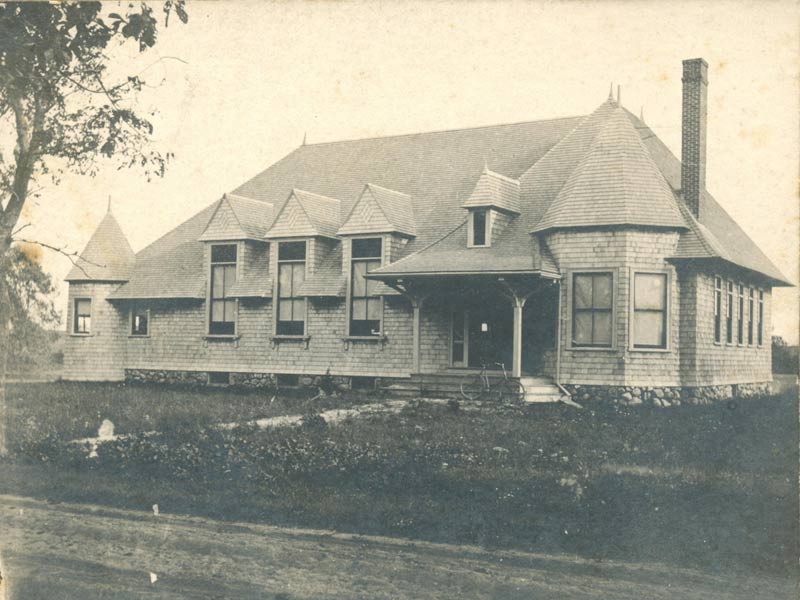
The first library services were provided in East Dennis by a private lending association founded in 1866. Jacob Sears, a lifelong resident of East Dennis, gave funding for the construction and endowment of this library building, which was completed in 1895 to a design by the Boston firm of Rand & Taylor.
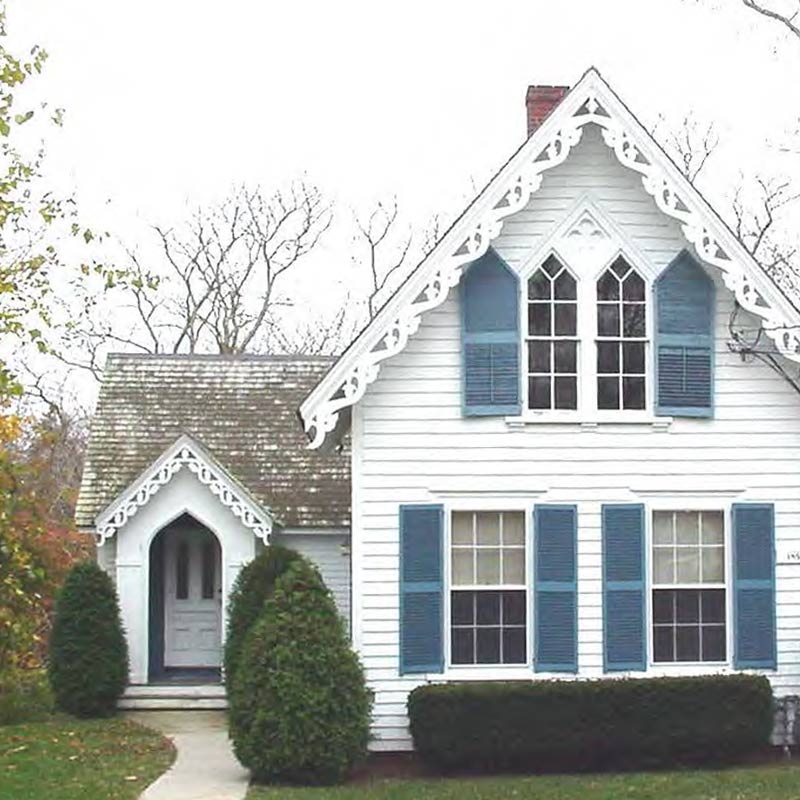
This Gothic style former 19th century residence, cobbler shop, and the home of a poetess has been for many years one of the town's four little libraries. Probably moved to this site in 1856 from a Yarmouth church campground, it was first owned by John Rose, the first Portuguese resident of the town. It became the South Dennis Free Public Library in 1918.
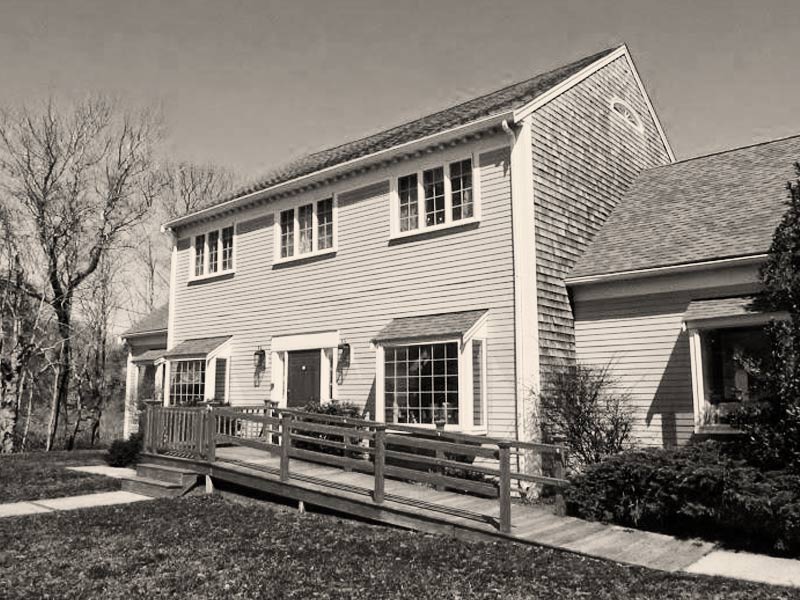
The Dennis Historical Society is proud that the West Dennis Free Public Library is the current home of the Dennis Historical Society's collection. Please see Library on the Home Page
Museums, Historic Sites and Markers
West Dennis Graded School & DHS Maritime
67 School St
West Dennis, MA 02670
Dennis Historical Society Library
260 Main St
West Dennis, MA 02670
Receiving Tomb at Dennis Village Cemetery
Dennis Village Cemetery
Rt 6A
Old King's Hwy
Dennis, MA 02638
Congregational Church of South Dennis
218 Main Street
South Dennis, MA 02660
Congressional Medal Of Honor Recipient
397 Depot St
Dennis Port, MA 02639
Cranberry Cultivation Commemorative Plaque
61 Whig Street
Dennis, MA 02638
West Dennis Cemetery
55 Fisk Street (corner of Pond Street)
West Dennis, MA 02670
We can't do this without you.
Find out how you can help the Dennis Historical Society preserve local history.
